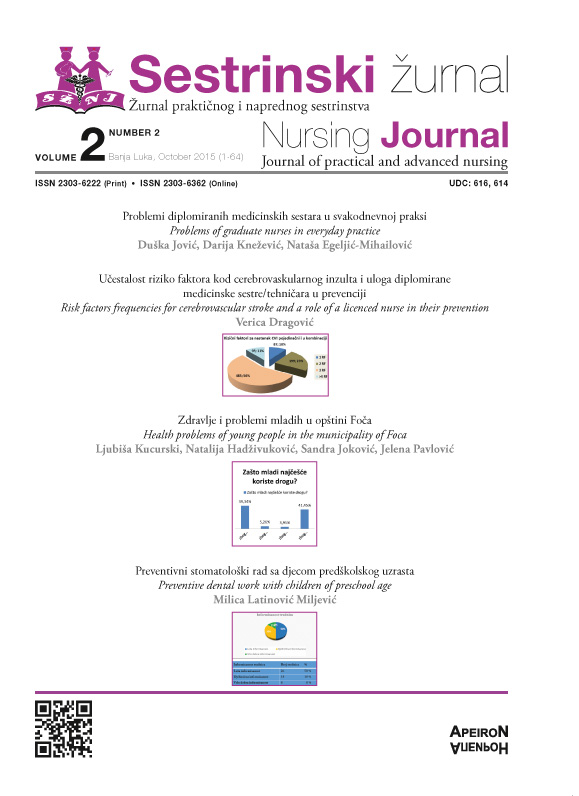The role and tasks of nurses / technicians in the field of mental health reform process in the mental health care system in Bosnia and Herzegovina / Uloga i zadaci medicinske sestre/tehničara u oblasti mentalnog zdravlja u reformskom procesu sistema zaštite mentalnog zdravlja u Bosni i Hercegovini
DOI:
https://doi.org/10.7251/SEZ0215015BAbstract
The problems within the nursing and care for mental health in BiH are numerous and severe. The burden caused by mental disorders is significant and there are increased needs of the population for services in the field of mental health that the current health care system is not successful for answering. In addition, there are significant difficulties in continuing the reform process.
Results of research conducted from 2008 09th “Analysis of the situation and evaluation of mental health services in the community in Bosnia and Herzegovina” indicate increased needs of the population for services from the field of mental health, but poor socio-economic conditions make the health care system can not provide. Start reform processes have stalled and do not meet the population’s needs in the field of mental health.
Since 1996, Bosnia and Herzegovina embarked on a reform of mental health care, putting the focus on care in the community, and to date there has been some progress in the reform of mental health services, and the development and strengthening of nursing personnel in the field of mental health and their professional development. Mental health care in the community requires continuity in the exchange of information and links between professionals (nurses / technicians) and service users, family members / guardian, the various agencies and institutions, as part of the overall health care.
Protected housing, as part of the “stepped care” appears as an alternative to hospitalization, chronic psychotic person. Studies have shown that the degree of psychopathology and addiction higher among users who are placed in institutions for chronic accommodation, but with users who are located in a protected home which is confirmed by our experience.
People with mental health problems have a need for security, both in the personal as well as in socio-economic terms, the need for belonging and support. Providing successful care mentally ill in the community is the greatest challenge facing the profession, both in Bosnia and in the whole of Europe.

